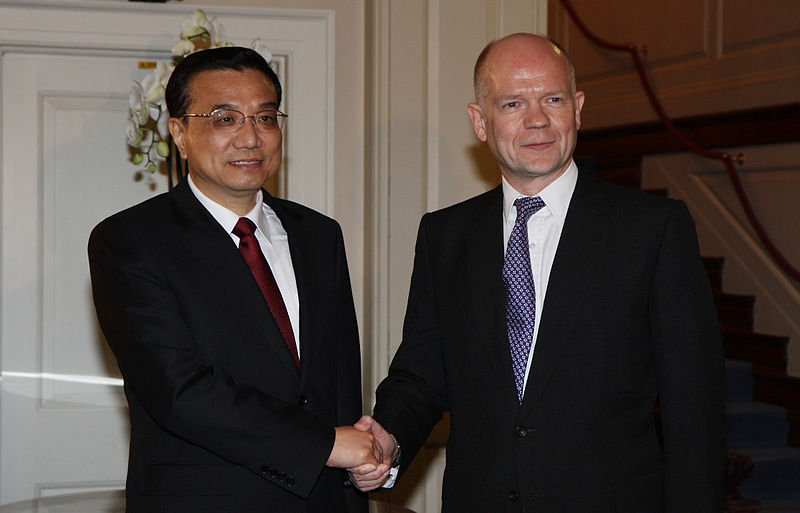
June 18, 2014, by Tony Hong
Changing Misperceptions and Easing Misgivings
By Dr David O’Brien,
Assistant Professor, School of Contemporary Chinese Studies,
The University of Nottingham Ningbo China.
Chinese Premier Li Keqiang is in Britain this week hoping to boost trade, strengthen cooperation and in his own words “change misperceptions and misgivings“.
Premier Li arrived on Monday for a three day visit – the first by a Chinese leader since a diplomatic row over broke out over David Cameron’s decision to meet the Dali Lama two years ago.
All ministerial contact was suspended by China after Mr Cameron and Deputy Prime Minister Nick Clegg met the Dali Lama in May 2012, in defiance of a request from Beijing.
China has long opposed foreign leaders meeting with the Dalai Lama who fled Tibet for India in 1959 after a failed uprising.
Last November Prime Minister Cameron led a major trade delegation to China and newspaper reports at the time quoted Downing Street sources as saying “This visit is about forward looking – we have turned a page on that issue. We have turned a page on the Dalai Lama issue.”
In an article for the London Times, which was widely quoted in the Chinese media, Premier Li writes that his trip has a threefold purpose, with the first being “to discuss ways to deepen cooperation in various fields and thus spur the growth of our respective economies.
“Second, to present the real China so as to change misperceptions and ease misgivings; and third, to draw on British perspectives and experience,”
“We look forward to stronger cooperation in finance, infrastructure construction, among others, and more robust exchanges in research, education, and culture,” Premier Li said.
Li is also due to meet with Queen Elizabeth at Windsor Castle during the trip.
In advance of the visit Home Secretary Theresa May announced that Britain would liberalise its visa regime for Chinese visitors.
Chinese business visitors and and tourism visitors will now be able to use a single application to process their visas for Britain as well as for a Schengen visa, which allows access to 26 European countries as part of the pilot programme.
A new 24-hour visa service to Chinese visitors will also be launched in August, while Chinese visitors will, from the autumn, be able to use an Irish visitor visa to travel to the UK without the need for a separate UK visa.
Deals up to £18billion are also expected to be agreed during the visit.
BP will sign a deal worth more than £5bn to supply liquefied natural gas to China and Royal Dutch Shell
Exploring the significance of this week’s visit, Britain’s influential Guardian newspaper remembered how British envoy Lord Marcartney refusal to kowtow to the Qianlong emperor in 1893 supposedly contributed to the failure of Britain’s first trade mission to China.
It was after this visit that Qianlong sent his famous letter to King George III in which he wrote:
“If you assert that your reverence for Our Celestial dynasty fills you with a desire to acquire our civilisation, our ceremonies and code of laws differ so completely from your own that, even if your Envoy were able to acquire the rudiments of our civilisation, you could not possibly transplant our manners and customs to your alien soil. Therefore, however adept the Envoy might become, nothing would be gained thereby.
Swaying the wide world, I have but one aim in view, namely, to maintain a perfect governance and to fulfil the duties of the state: strange and costly objects do not interest me”*
The problem then, the Guardian ruminates, was that Britain expected its political power to translate easily into trade advantage. The problem now is that China expects its economic power to translate easily into political advantage”.
*Adapted from Readings in Global History, Vol. II, Revised 2nd Edition. Edited by Anthony Snyder and Sherri West. Dubuque, IA: Kendall-Hunt, 1997. Pages 155-159. Re-printed by permission of Kendall-Hunt.
No comments yet, fill out a comment to be the first

Leave a Reply